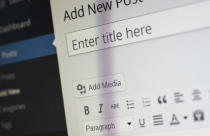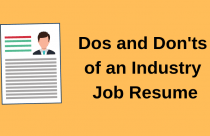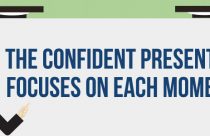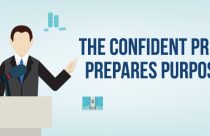Tips on Writing a PhD Resume for an Industrial Research Job

Many young researchers face the challenge of choosing an appropriate career path towards the end of their Ph.D. Academic research does not appeal to everyone and therefore, researchers sometimes consider a career in industrial research. You can define industrial research as applied research undertaken in the private or non-profit sector. Young researchers who have little or no experience outside academia may not know how to apply for an industrial research job. In this article, we describe how to write an ideal resume to apply for an industrial research job.
Why Choose Industrial Research?
Although the number of Ph.D. holders is growing with every passing year, the number of jobs in academia are not. While 36,000 PhDs were awarded in 2011, just 3,000 academic positions were available in the same year. In the U.S., tenure-track positions are vanishing quickly. Salaries for those who secure tenure-track positions average to around $60,000 a year. However, far more people in academia work as adjunct professors. These people have neither job security nor benefits. The current state of the job market, therefore, makes a compelling case for young graduates and researchers to consider careers in industrial research.
However, applying for an industrial research job is different from applying for an academic position. Writing an academic CV is very different from building a successful industry resume. Academic CVs are expected to focus on qualifications and publications, whereas industry resumes are expected to highlight other factors of particular use to industry. Industrial hiring managers look more at relevant experience, skills, and behaviors that show you can succeed in the non-academic workplace. These include organization and time management, project management, writing, and verbal communication, teamwork, troubleshooting, conflict resolution, and people skills.
Things to Include in Your Industrial Resume
An industrial resume should be just one or two pages in length. Give experience priority over education. Tailor your resume according to the job you are applying for. Key items you should include in your industry resume are:
- Professional experience directly related to the job you seek. Have you worked in a similar role in a different industry? Have you worked in this industry in a different role? Both count as related professional experience.
- Achievements in past roles. Focus on your achievements This doesn’t mean list your job duties. Don’t say your job was to write grant proposals. Say you successfully brought in $1,000,000 in funding by leading a team of skilled biologists. Remember that hiring managers love numbers!
- Relevant skills. You are applying to be a team leader, and you have worked as a project head in the past? Does the job call for client facing duties, and you have experience working with people? Let your potential employer know your skill relevant to the job.
You can also put volunteer experience, hobbies, and other social activities on your industry resume, as long as it highlights something relevant about you for the job.
Things to Avoid in Your Industrial Resume
Before you start sending out your resume, make sure you didn’t include any of the following:
- An unprofessional email address: Nobody wants to hire “hotdog69@yahoo.com” to be their next project manager. Instead, create a professional email address in this format: firstname.lastname@domain.com.
- Personal information: Information such as religion, caste, race, age, marital status, social security number, gender, orientation, political affiliation, or photograph. Laws in many places forbid hiring managers from considering these factors, and therefore including them may get your resume thrown in the trash.
- Impersonal greetings: Greetings like “Dear sir”, “To Whom It May Concern” are well behind time and will not work for you. You must address the email directly to the decision maker or an associate responsible to take your word ahead.
- Giving dates: Your recruiter is interested in knowing that you received an award for excellence at work, and not that you received an award on 10th June 2012. Your achievements and skills are the deciding factors and not when you achieved something.
- Typos and grammatical errors: You do not want to realize you sent out 40 resumes saying you pay “atention to detail” only to be embarrassed and unemployed later!
- Long paragraphs: In a pile of hundreds of resumes, you can easily be knocked out of the list if your resume includes long paragraphs. Instead, mention all the relevant information in a concise and preferably pointer format to save some time of your recruiter and impress them without even meeting them.
- References: Interested employers will ask you for references only if they want them.
Are you considering a career in industry? Do you have other tips for industrial research job seekers? Please let us know in the comments below.









This blog is very informative & helpful for me. Thanks for sharing.